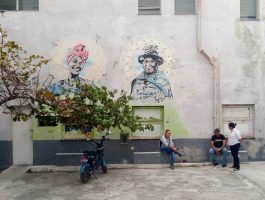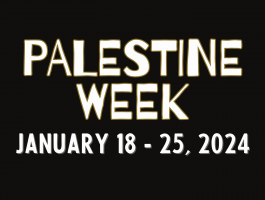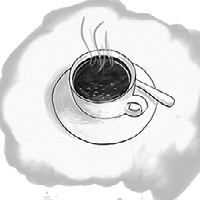In his second poetry collection, Remi Kanazi takes the reader on a journey of violence and collective ignorance from Palestine to Ferguson to Iraq to Brooklyn. His unapologetically angry, graphic depictions of violence and fierce indictment of the ignorant among us who claim “the world is a messed-up place” but do nothing to stop it (30).
Kanazi’s book is not propaganda, and it’s not another book merely “explaining the situation,” two things Kanazi rejects in his collection. Rather it’s a call to arms with a deep sense of urgency. In his use of vivid, visceral language, the poems are a reminder of the violence that is a reality for so many people. The prose is short and choppy, often completely lacking in punctuation. This makes it feel almost desperate. It’s not a collection of stale, impersonal verses of self-pity—it is the cry of someone directly affected and saddened by the reality of the racist conflicts raging in many parts of the world, as we all should be. In “Layover in Palestine” Kanazi laments “what hallowed drones humans have become,” and with his collection, he makes an attempt to push back against this and make humans out of his readers once again.
Kanazi makes comparisons to the racial violence in America, from stop and frisk to police brutality and then draws them back to the bombs ripping Palestine apart and the occupiers that continue to steal Palestinian land. One of the most powerful parallels he makes is in “Hebron” where he describes the phrase “gas the Arabs scrawled across entryways / gas the Arabs inscribed by a people / who have been gassed before, (54). In the same manner he describes a young black man going on a first date only to be stopped and frisked, a mother who has piles of trash heaped upon her, and a baby splattered with blood on a doorstep. All of these images conjure up something wrong, like phrases and images that seem not to belong together, and yet for so many people they do. “Read the reports / become sick with yourself,” Kanazi suggests, and in making these sickening comparisons, he is forcing you to do so. (34)
Kanazi’s bare humanity and modern sensibilities (he ends several poems with hashtags) make him accessible. Hiss poems, resonating with the rhythm and passion of spoken word, are also pieces that can be read by those who do not read or understand poetry. The are provocative and energized in a way that is bound to open even the most conservative of eyes. The language he uses appeals to humanity at its most basic level, and Kanazi addresses carless Western comments like “the world is a messed up place.” At one point he emulates a frustrating dialogue, claiming that the problem is Afghanistan / I mean Iraq / I mean Afghanistan / no, Pakistan, yemen / Somalia, iran / our ally Saudi arabia / it’s al Qaeda on mars / the Taliban from the moon,” (66). His poetic transformation of these familiar blanket statements captures the frustration and the blatant ignorance surrounding the violence and war that has devastated so many countries and people that Western culture and media seem to glob together into just one big unfortunate mess. “Take Iraq out of your mouth,” he begs, “let a people breathe for just a moment / without trying / to set it ablaze,” (68). Kanazi refuses to indulge the collective amnesia of those who beg for “dialogue” and who whine about the violence in the middle east without actually doing anything about it, or even bothering to understand that there are real people that are being destroyed by the violence that western media condones.
“We have been reduced to odes,” Kanazi laments in the poem “Dislocation” (51). There has been a dense fog of violence collected around violence and racism, but Kanazi refuses to let the reader believe this. “We will return,” Kanazi says, “that is not a threat/not a wish/a hope/or a dream/but a promise.”
This review was generously provided by Busboys and Poets Books Supervisor Laura Lannan. Please join us for an evening of hip hop and poetry with Remi Kanazi on January 14th at 5th and K.



